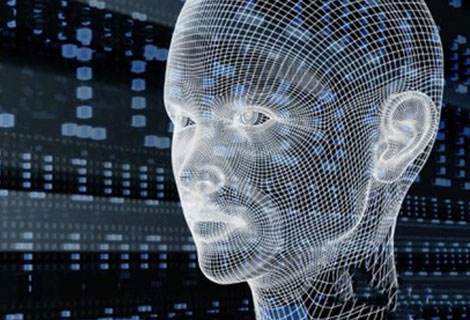AI Cameras Aim to Guess Shopper's Age, Sex and Mood
Facial recognition technology is increasingly being used today in many places in the United States and overseas. Such systems use machine learning tools to scan faces in an attempt to recognize particular individuals.
Many police agencies across the world have long used facial recognition technology to search for and help catch criminals.
The technology has also been used at some U.S. airports to help confirm the identity of passengers and get them on flights. It is also used to unlock phones or other electronic devices, and in some cases, even cars. Some robots use facial recognition to recognize the people it is communicating with.
Now, a similar technology — known as facial detection — is entering a new field: the business of advertising. Facial recognition technology is meant to identify a specific individual. Facial detection systems aim to detect the presence of a person and try to predict some facts about them. In the United States, such systems are currently being tested in a small number of stores.
Businesses use cameras set up inside the stores or public area. The cameras scan the faces of individuals and predict their age and sex. Some systems are also designed to judge a person's emotions.
That information can then be used to target people with real-time advertisements on video screens during their visit to the store.
Several of these systems were demonstrated earlier this year at a gathering of the National Retail Federation, the Associated Press reports.
One facial detection system, developed by a company called Mood Media, aims to judge a person's "happiness" or "fear" level. Businesses could use such information to get real-time reactions from people as they look at products or video ads in the store. Such a system could also be used as part of a company's efforts to test the popularity of specific products.

Another company, Cineplex Digital Media, showed off a camera-powered system designed for use in retail businesses, on the street or at bus stops. The company says its product can detect things like whether someone is wearing eyeglasses or has facial hair. That information could then be used to target those people with ads for new glasses or shaving equipment.
Such systems could also be used by restaurants to send ads to people driving up for window service. If the camera recognizes a large vehicle, for example, the system could send an ad for a family-sized meal.
Facial detection technology has reportedly also been placed inside large billboard signs at Westfield centers in Australia and New Zealand. Britain's The Guardian newspaper reported there are currently more than 1,600 camera-equipped billboards at more than 40 of the company's retail centers.
Quividi, a French-based company, developed the billboard system. The signs are equipped with cameras with the ability to detect information about people in crowds. Quividi claims the system can correctly predict a person's sex at least 90 percent of the time, The Guardian reported. It is also designed to detect a person's age and five levels of emotion – from "very happy" to "very unhappy."
Some privacy groups have criticized the use of such facial detection systems. Pam Dixon heads the World Privacy Forum, a not-for-profit group that researches privacy issues.
"The creepy factor here is definitely a 10 out of 10," she told the AP.
Dixon added that the technology could lead to some discriminatory methods. For example, a business could raise the price of a product or service based on a person's age. Or it could target a person with an ad for an anti-depression drug if the individual appears to have a sad facial expression.
"We shouldn't be gathering the emotional state of anyone," Dixon said.
One company testing the technology in two of its U.S. stores is large food retailer Kroger. The company told the AP its cameras aim to predict a shopper's age and sex. But Kroger said the personal information is anonymous and not stored away.
Quividi, the maker of Westfield's billboard system, says on its website that it only stores anonymous information "that describes the size and the demographics of an audience." The company added that it does not keep any identifiable information about people and does not record any images or video.
Supporters of the technology say it could improve the buyer's experience by drawing attention to products they might like or by offering them special deals.
I'm Bryan Lynn.











